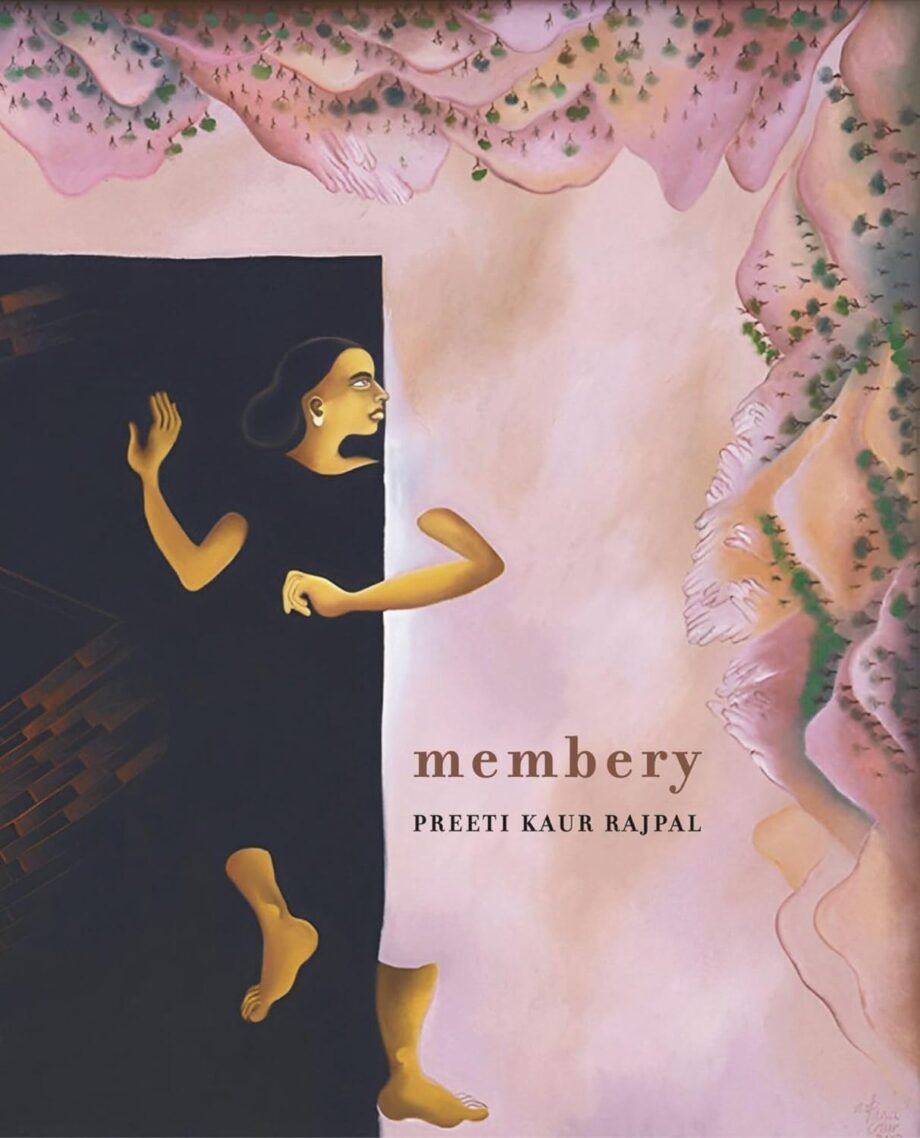Reviewed by Karina Jutzi
Membery
by Preet Kaur Rajpal
Tupelo Press
May 2023, Paperback, 118 pages, ISBN-13: 978-1946482983
Memory, membership, language, translation, spirituality and family are all themes of Preet Kaur Rajpal’s haunting new poetry collection Membery. The title itself shows how Rajpal creates her own language through combining both her American and Indian heritage with Sikh religion and spiritual history. It is a book that truly only she could write. Reading it makes you feel like you are getting a lens into her inner world, growing up as a young girl in an immigrant family, during 9/11 and the following years. The title Membery, seems to me, to be based on her own memories, tied with her complex membership to the Sikh community.
The structure of the book mirrors Rajpal’s own journey. She has had to create new ways of moving in the world. Sometimes, beautiful, sometimes awkward, those forms are clear through the language. The work is a combination of two worlds and times, where she is left no choice but to create something new and fully her own.
Using many non-English words, Rajpal has included a glossary at the end. This choice seems a sort of admission that the readers are unlikely to know the words and stories that were familiar to Rajpal’s own family and ancestry. The inclusion of the glossary is helpful. I (the reader) had to look up many of the words. Yet, even the inclusion of it gives weight to feelings of otherness Rajpal highlights. It simply must include a glossary, the need to translate is ever-present.
Membery reads like a piece of art. The shapes and images hold close to the power of the words themselves. Each poem has the feeling of a small, dreamlike memory that Rajpal is displaying for us. Though the majority of poems are easily recognizable as left aligned, with spaces, plenty dance around the page in a form all their own. Some create shapes so striking and recognizable (a window, an hourglass, a mound) that the images cannot help but inform the words. One page is done entirely in her own handwriting, where she has traced, presumably, her own hands and written around and through them. The hands provoke the powerful image of the many things that must be carried. As the poem reads, “my hand is my first house.”
This playing with form and language is where Rajpal thrives. The book feels cohesive in a way that I find few manuscripts do. The entire book is written in lowercase, and without punctuation. This consistency gives the book the feeling of one long piece, flowing from poem to poem. Even when we go to new locations, this structure remains a guiding light in the book. Whereas many poetry books jump in form and style, this one feels like it belongs together in a way that is satisfying.
Another cohesive form in Membery is the udassi’s. The book is broken down into 4 udassi’s, which she defines at the book’s glossary as, “referring to the spiritual travels of Guru Nanak Dev Ji, who was the first Sikh Guru and the start of Sikhi. The word udaasi connotes being outside of the home.” In this book she seems to overlay the spiritual journey of Guru Nanak Dev Ji on to that of her own family; their joys and their obstacles, making the whole book a sort of pilgrimage.
The first section, or udaasi, comprises a single arresting poem, complete with Sikh word symbols, which makes it very clear we are on a new and unfamiliar terrain. Yet, as the poem reassures us in its final stanza: “the beginning/how one enters/the door knowing/there will be an exit.”
The poem ecdysis, which is a word that refers to a bug molting its exoskeleton, is spread as a four part series throughout the book. The poem plays with the image of snakes in such a way that it feels almost resonant of a sestina, but with its own secret rules and language, as Ranpal has taught us by now to trust.
The poem “The Fall” feels similarly, but this time with the color red. The Fall poem retreats the images in such a way that we are forced to look at the single word in a new light. “i brim a brown paper bag/with a heap of pomegranate/though i do not know how/to say the long perishing/in a red-blooded english.”
I would be remiss not to acknowledge the 27 page poem named after “The Patriot Act,” which appears to be poetic footnotes to the legal document, set against a blank page. This is a perfect example of poetry as political activism. Some of these sections have been intentionally crossed off, or redacted. In some sections of the letter “i” has been removed from every word. This piece sums up the themes and essence of the book. The footnotes combine memories of her grandfather with information on the patriot act, and the origin stories of Guru Nanak. The poem is an achievement unto itself, and I could see it being published completely on its own accord as a political chapbook.
I will end this review with a striking poem in the middle of the book titled “The Wall.” This poem sums up what is evident throughout the book: that this challenge in translation mirrors her challenges in life. The poem begins: “in the house of language/a wall i cannot translate/rises from the fire hidden/within.” This book seems to be a breaking down or a climbing of that very wall of language.
About the reviewer: Karina Jutzi is a published playwright, poet, and essayist. She runs a ritual healing business and is training to become a Death Doula




